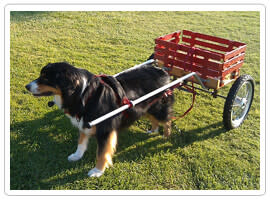
I received an email this morning from a dog owner who is having some issues with his adult dog. He began his email with, “I attended puppy and basic obedience classes with Spot (name changed for privacy reasons) several years ago and he did well in those classes. But now he seems to have forgotten it all and is getting into trouble.”
If you have particular skills – perhaps for work or for a favorite hobby - you know that those skills must be practiced to keep them sharp. The same applies to dog training; both for the dog and the owner. In this case, like so many others, the dog training skills haven’t been practiced on a regular basis and so those skills have eroded.
When Skills Aren’t Reinforced
I remember this dog and owner from their classes. They did well in puppy class and then enrolled in a basic obedience class where they again succeeded. Even though his puppy was younger than most of the others in class, his puppy was attentive, cooperative, and was, well, basically awesome.
That was several years ago though. According to his owner, the adult dog is now confident and for the most part well-behaved. However, in some areas, Spot is less than co-operative and ignores his owner. For example, Spot’s owner says Spot is now dashing out the front door every time it’s opened and he has both scared people walking past and darted out into the street. He says, “I originally taught Spot to sit at open doors and wait for permission to go out as we were taught in class, but I haven’t practiced it with him at all. I thought he’d remember it.”
I’m sure Spot remembers those basic skills but if the skills aren’t reinforced every once in a while, then his motivation for cooperating will evaporate. Positive reinforcement for an adult dog with established skills can be as simple as a, “Yeah! Thank you, good boy!” said in a happy tone of voice. A treat given sporadically will work even better to keep the skills sharp.
On the other hand, if Spot decides to ignore an established action – such as sitting and waiting at the open front door – then a training session on leash is in order. I recommended that Spot’s owner put his dog back on leash and re-teach the sit and wait exercise at the front door just as he did several years ago. I told him to praise and reward Spot for cooperation and to interrupt Spot should he dash out the door. Several training sessions will probably bring that skill back.
I also advised him to prevent any door dashing until the training tune-up was begun. Spot obviously has a great time dashing out the door and that fun reinforces his desire to do it. So right now, Spot’s owner has to make sure Spot never gets the opportunity to do it.
Do More Training
I also recommended that Spot and his owner come back to a basic obedience class for a training tune-up. Although they both did very well in the basic obedience class several years ago, their skills have not been practiced. A basic class would help them redevelop their communication skills and rebuild that sense of cooperation they used to have.
After the basic class, they could participate in a variety of other types of training to keep their skills sharp. Trick training, for example, is a great way to have fun with your dog, use his brain, and polish your training skills.